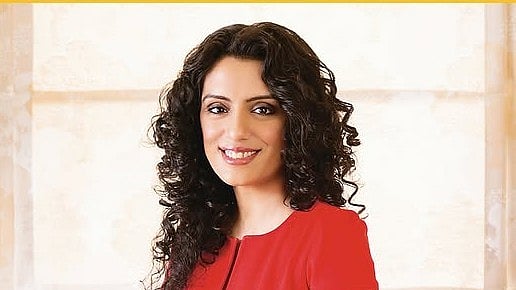RRR Was A Great Success, But Not Like A Squid Game Or Parasite. So, How Do You Produce In India With Global Appeal? |
What happens when a panel of experienced producers, who blend local sensitivities with global experience, come together? It’s a detailed discussion on the complexities of producing for and with the Indian market, what shows resonate, what challenges exist in the market, and how the production community can adapt to internationalise opportunities. Such a panel discussion took place at the Content India Summit 2025, an initative by Dish TV Watcho in collaboration with C21 Media.
The initiative is aimed at reshaping the future of Indian content through international collaborations, new market opportunities, and industry-wide innovation. With content consumption patterns rapidly evolving, India is not just producing stories for domestic audiences but also crafting narratives that resonate worldwide.

Sunder Aaron |
What really works
I appreciate RRR and I know that everybody holds that up as a great example of success, but I don’t think it really is. I mean, I think it really only did great with the Indian diaspora. It’s not like a Squid Game or Parasite. So none of our films have really blown up in that way. And when you talk about making something local that will go global, that is actually the only way to do it. The sensibilities that will appeal globally will lead to a massive box office; it has to be something that is authentic, is very Indian in its storytelling, and ultimately will appeal globally. So certain genres, I think, are catered and specially made for that. One thing that we’re working on a lot is horror. You can do horror very authentically in India. There are so many folk tales. If you can tap into that, then you have the chance of having something blow up.” — Sunder Aaron, Managing Partner, Locomotive Global

Parveen Dusanj-Bedi |
Bringing international shows to the local market
So, I have been here for 17 years. Don’t be fooled by the accent. I’m British, but I’m very much a Brit in Bombay. And for the first time, I’ve seen such changes coming in from the government and from the embassies around the world pushing India as a destination to shoot that I’m actually inclined to build out my production arm, which I’m actually doing now, strengthening it. We were at the roundtable discussion just last week with the Maharashtra government when we were talking about the policy for media and entertainment in India for Maharashtra. There is a churn, and there is a change, and it’s a positive change.” — Parveen Dusanj-Bedi, Founder and MD, CreativeNation

Radhika Gopal |
How the writing community is feeling at the moment
I’m trying to think of more positive sounding words, but I think the resounding emotion is anxiety. I think that’s not just India; that’s worldwide. I don’t think we’ve ever been in a global recession of sorts. You know, typically when one market kind of hits a plateau, another one’s just booming. I think it’s the first time in the 10-odd years that I’ve been in at Tulsi that I’ve seen every market, every counterpart I speak to across the world feeling similar emotions and stresses. In a sense, it’s reassuring because at least we’re all in this together. It also means that better times have to be ahead because all of us in this room deeply love the business.” — Radhika Gopal, Head of Writers and Directors, Tulsea

Roopak Saluja |
On TV that fits in this market and has global sensitivity
People often misunderstand what it means to be global. Many think there is a certain formula for making stories global—there isn’t. Universality lies in specificity. Adolescence is an example of that. Before we knew it, my kids, aged 15 and 13, had already watched it and were discussing it over lunch. One of our key projects began when I optioned a book in 2021. The author, an Indian investment banker and consultant living in the Bay Area, had lived in Tehran in the early 70s and wrote a book inspired by that experience. It became an espionage thriller set in pre-revolution Iran about an Indian expatriate CFO of an Iranian state-owned power company who becomes embroiled in the Shah of Iran’s nuclear bomb plans. The protagonist is played by Kunal Nayyar from The Big Bang Theory—we thought it would be interesting to subvert stereotypes by taking someone known as a nerdy Indian character and turning him into an alpha male Indian spy with 70s swag.” — Roopak Saluja, Founder, BANG BANG Mediacorp

Manoj Dobhal |
With Indian storytelling gaining global acclaim, this is the moment to amplify international partnerships and position India as a content powerhouse. All of this had been missing big time in India, and that’s what we wanted to address.” — Manoj Dobhal, CEO and Executive Director, Dish TV India
